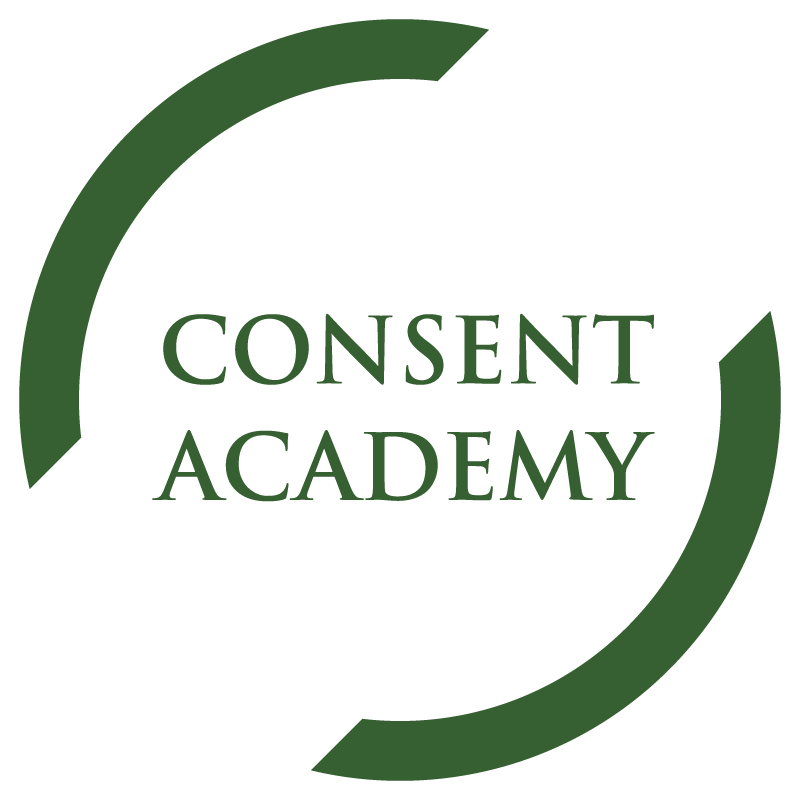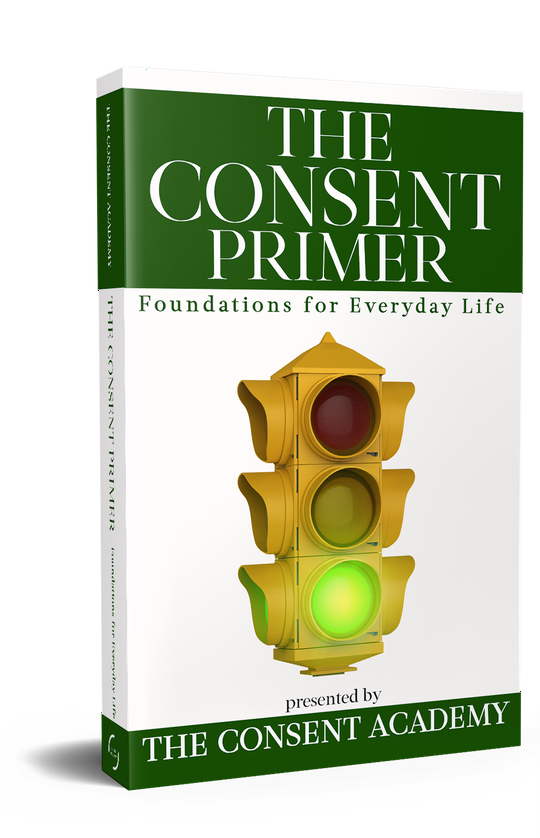Who Are We?
Consent Academy is an educational collective founded in 2016 in Seattle, WA, currently with staff and volunteers all over the world. We believe consent is a part of everyday life, and its practice builds stronger, safer, and more connected communities. Our approach incorporates disciplines of psychology, sociology, public health, psychotherapy, and personal coaching to create a systemic view of how consent impacts everyone, from the bedroom to the boardroom.
Consent Academy is a program of the Pan Eros Foundation, a 501c3 non-profit organization. All of our profits support our educational programming.
Consent Academy is a program of the Pan Eros Foundation, a 501c3 non-profit organization. All of our profits support our educational programming.
Our Mission:
|
Our mission is to teach about consent in all of its complexity and potential. We are committed to establishing the foundations for consent culture by:
|
What Do We Do?
|
Consent Academy exists to help people understand the complexity of consent and build consent culture in their own communities, organizations, schools, and homes.
We do this by:
|
Our Role:
We are Educators
As educators in the field of consent, our role is to help people better understand consent and the way it fits into their lives.
- Our work is not about telling you how to do consent or what you "should" do.
- Our work is about helping you to understand what consent is and how it can work in your life and context.
- We're here to help you know options and concepts so you can choose what's best for you.
We are Advocates
We provide compassionate support to help people through the experience of harm.
- We are not here to judge, punish, or blame people. Most people get enough of that already.
- We're here to provide a non-judgmental and professional space to help anyone involved in a consent incident.
- We are not here to determine who is right or wrong, to keep track of violators, or to control anyone's behavior.
- We're here to provide a framework for accountability that individuals and organizations can use to move forward and reduce harm.
- We do not directly run or support accountability processes.
We are Experts
We don't know everything about consent. That would be impossible given its scope and complexity. But after hundreds of hours of research and teaching, we've learned a lot.
- Our collective is made up of therapists, teachers, social workers, academics, consultants, students, sex educators, survivor advocates, and people who have lived and experienced the impact of broken consent.
- We're here to lend our knowledge, understanding, and experience to you.
We are a Collective
Though we come from many different disciplines and backgrounds, we work together as a unit to bring our knowledge, experience, and understanding to you.
- Our staff and volunteers work together to show up for each other and for you. Whenever we can, we teach and consult in pairs, giving multiple voices to the complexities that exist.
- There is no way to process consent alone. There is too much complexity and content. By bringing together diverse voices and experiences, we're better able to manage bias and provide sufficient emotional support for one another in our work.
A Note on Using the Consent Academy Name to Justify Behavior
Consent Academy is comprised of two co-directors and a dynamic group of volunteers. Hundreds of people take our classes and thousands engage with our content through social media every year. We teach our students and audience foundational principles of consent, one of which is using your own discernment to measure risk. Anyone who uses the Consent Academy name to convince or infer to someone that their behavior is above scrutiny or should be considered consensual no matter how it makes someone feel, is violating our ethos and the consent of our organization.
Our volunteer code of conduct specifically includes the requirement that volunteers not use the Consent Academy name to justify their own behavior. If you find a volunteer is violating this part of the code of conduct, please reach out to [email protected] to make a report.
Our volunteer code of conduct specifically includes the requirement that volunteers not use the Consent Academy name to justify their own behavior. If you find a volunteer is violating this part of the code of conduct, please reach out to [email protected] to make a report.

